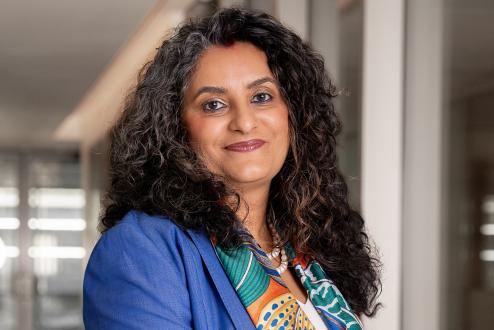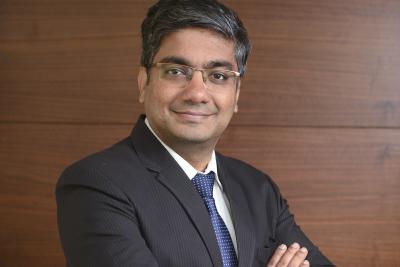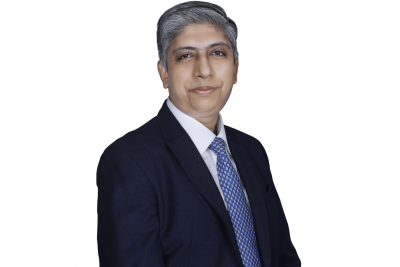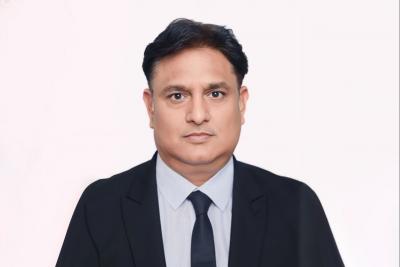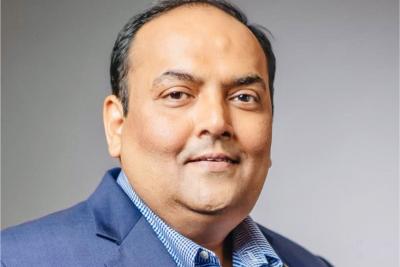The Changing needs of Wealthy Indian Families – Words of Advice from Private Client Partner Sunita Singh-Dalal
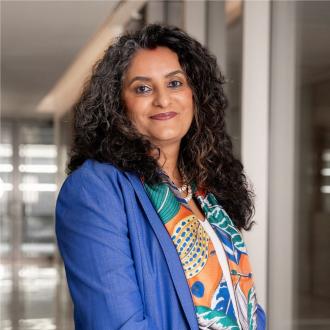
Sunita Singh-Dalal of Hourani & Partners
Sep 28, 2022
Sunita Singh-Dalal is a Partner, Private Client & Family Offices at the Dubai office of leading law firm Hourani & Partners and works extensively with Indian clients. She was one of our expert panellists during a discussion on wealth and estate structuring on September 7 at the Hubbis Wealth Management Forum in Mumbai. She considered how estate and legacy planning are changing today, the onshore and offshore opportunities as well as associated challenges, and some of the key issues around robust estate planning and structuring. We have summarised some of her views in this short article.
Moderator: Since early 2021, we hear that some 30,000 HNWIs have shifted themselves and their wealth out of India, and it seems that Dubai is highly sought after by wealthy Indians, especially with their Golden Visa programme. What does all that mean for estate and legacy planning for wealthy Indians and their families?
Sunita Singh Dalal: I'm probably one of the more seasoned veterans in terms of advising many Indian families in relation to key issues such as the consolidation and preservation of wealth, the smooth transition of the ownership of family-owned businesses and diversification of a family business to reflect the changes within a family and future growth and expansion of their business. I also help the next generation achieve their financial goals and aspirations and diversify the family portfolio. So, I hope I bring some perspective and valuable insight.
There's been a significant flurry of activity since the onset of the Pandemic, and a great deal of interest is focused both on Dubai and Singapore, with Singapore being historically a preferential hub for wealthy Indian families. However, there is also increasing familiarity with what other jurisdictions, such as Dubai, can offer. More people see Dubai as an extremely attractive, hybrid solution, but in order to maximise all that Dubai and the UAE has to offer, it is vital that families obtain competent advice from those based in the region.
We have seen Dubai develop rapidly over the last 5 years, especially with the introduction of wealth management structures such as the Foundation, which was very deliberately created as a hybrid of a trust and a company. In its simplest form, you can equate a Foundation to a passive holding company used to depersonalise the ownership of assets so that a Family can continue to preserve, consolidate and maximise their wealth without any interruption to the underlying operations of the family business.
A Foundation is an orphan structure that exists in perpetuity, which means no one person owns it and that it continues to exist, regardless of the demise of individual family members. For example, if positioned above an existing operational business, it facilitates the flow of wealth and income for consolidation purposes and enables the outbound flow of distributions to family members, to facilitate diversification of commercial activity, or perhaps just the onward transmission of wealth.
Unfortunately there are some significant misconceptions about the Middle East, especially in relation to the application of Sharia law and forced heirship. It is vital to understand that unless one is a Muslim, Sharia law is not relevant to estate and succession planning. Before jumping on a plane to “get a golden visa”, it is vital to have considered the implications and benefits of an alternative residency at the outset. Concise pre arrival tax planning and cross border advice is crucial to success!
However, it is also equally important to keep revisiting that initial advice to make sure that it remains relevant to the Family and the continual evolution of the Family; if properly structured at the outset, structures can be revisited and tweaked to accommodate changes, without having to be completely reconfigured which is terribly expensive and disruptive to existing operational businesses.
There is certainly a rising level of sophistication in terms of family governance, for example the implementation of family constitutions and family charters. I think it is very much incumbent on professional advisors to continue to advocate best practice, which is why over the past two years, I've dedicated a lot of time on a pro bono basis to helping advisors understand the importance and relevance of such matters. Relationship managers and trusted advisors in Singapore, Switzerland, the Channel Islands and the Middle East are keen to learn more about wealth management solutions for clients with global portfolios that include Middle Eastern assets, which in turn will enable them to have more meaningful conversations with their clients.
A key point to also remember in relation to legacy planning, is that a Will alone is not a viable succession plan. “Succession” is not just relevant in the context of the continuity of business, but it also affects family members themselves; if there's no harmony within the family, then the family business will very soon come to a halt without a clear succession plan. The key to success is clear communication, competent advice and inclusive consultation with all family members at the outset.
Moderator: What are the key opportunities for wealthy Indians in terms of estate and succession planning?
Sunita Singh Dalal: I think the biggest opportunity, first and foremost and the key message that trusted advisors should be sending clients, in its simplest form, is that depersonalisation of wealth leads to consolidation and preservation and growth of capital for a family, regardless of jurisdictional boundaries and location of family members. With the latest ODI Regulations that we have seen introduced in India in 2022, the level of outbound investment activity and the opportunities for business families to benefit from these liberalised parameters, is only going to increase.
Therefore, it is absolutely vital to plan ahead prior to implementation. For example, a well thought out plan can enable clients to create a structure to facilitate trade and overseas business expansion in new markets, using the UAE as a business hub. This can also include vehicles that will enable the Family to consolidate, ring fence and protect their overseas wealth and profits as they accumulate using Foundations, as well as include investment vehicles such as Family Offices.
There are a range of new long-term residency options in the UAE ranging from Golden Visas, Green Visas to Investor Visas etc. and changing residency has become much easier and simpler. For wealthy Indian families, the opportunities are endless and seeking the right advice ensures that they create optimal, but flexible structures at the outset, that will evolve as the family evolves whilst also accommodating the growth of the Family business.
Families are also beginning to understand that proper governance is critical. Curating a Family Charter takes time and must involve a comprehensive, inclusive consultation process across the entire family, regardless of age and gender. Understanding and engaging the next generation at an early stage, is essential. Giving the next generation a voice within the family governance system is critical. By embracing a truly inclusive approach at the outset, the “riches to rags” horror stories and dissipation of ancestral wealth, are truly preventable.
Getting robust cross border advice that ensures assets are protected in the most appropriate manner, again, allowing them to grow but at the same time, letting your money work harder for you, making it work smarter for you, are essential. Whilst trusted advisors are invaluable to families, they must be aware of the limitations of their expertise; advising a family in isolation is hugely detrimental to the family. A seasoned advisor has the ability to recognise when an external expert must be brought into the inner circle to provide the Family with the right advice they need. This is of the utmost importance where family members may be resident in other jurisdictions for tax purposes or may have changed their original citizenships entirely.
I've seen prominent business families unravel and unwind complex structures that were put in place on their behalf, simply because adequate cross border compliance, regulatory, tax or legal advice had not been sought at the initial stages, prior to implementation. We must adopt a collaborative, cross border, advisory approach when advising international families to ensure that the right professionals advise are given on the relevant issues in their respective jurisdictions. It is also critical to ensure that Families fully understand and appreciate all aspects of a proposed succession plan before it is implemented. The absolute “buy in” of the entire family is essential to successful succession.

Partner, Private Wealth & Family Offices at Hourani & Partners

More from Sunita Singh-Dalal, Hourani & Partners
Wealth Solutions & Wealth Planning
Navigating Wealth, Conflict, and Learning with Hourani & Partners' Sunita Singh-Dalal
The Globalisation of Wealthy Indian Clients: Views from Sunita Singh-Dalal of Hourani & Partners Law
Latest Articles


